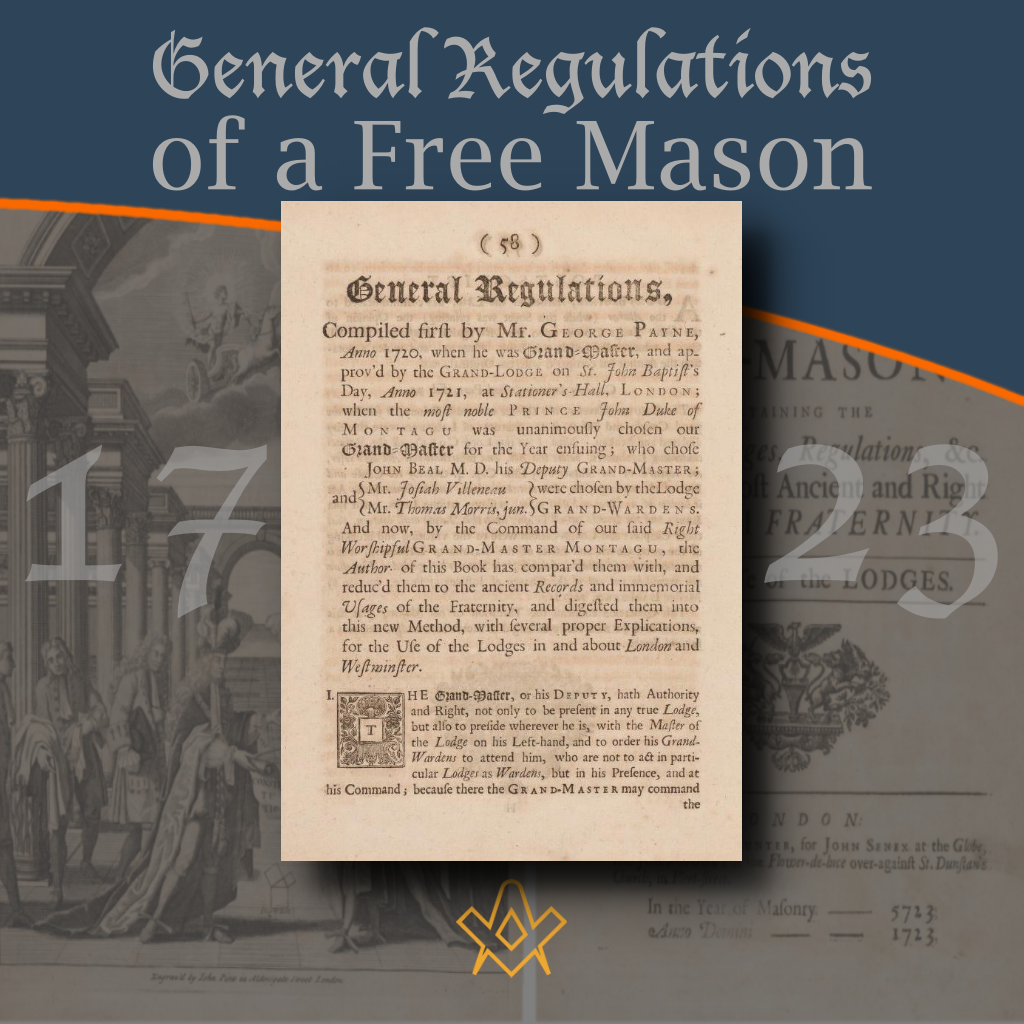In the Post Boy of February 26th – 28th, 1722/3, appeared the following advertisement:
‘This Day is Publish’d
`THE CONSTITUTIONS OF THE FREEMASONS. Containing the History, Charges, Regulations, etc., of that most Ancient and Right Worshipful Fraternity, for the Use of the Lodges.
Dedicated to his Grace the Duke of Montagu the last Grand Master, by Order of his Grace the Duke of Wharton the present Grand Master, authorized by the Grand Lodge of Masters and Wardens at the Quarterly Communication.
Order’d to be publish’d and recommended to the Brethren by the Grand Master and his Deputy.
Printed in the Year of Masonry 5723 ; of our Lord 1723. Sold by J. Senex and J. Hooke, both over against S. Dunstan’s Church in Fleetstreet.’
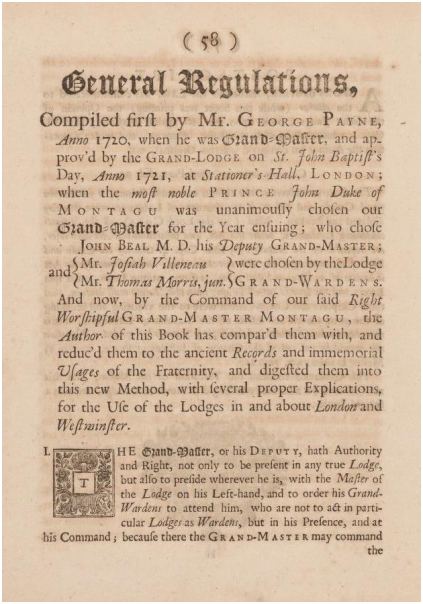
GENERAL REGULATIONS OF A FREE MASON
as contained in Anderson’s Constitutions of the Freemasons, published 1723
Compiled first by Mr. George Payne, Anno 1720, when he was Grand Master, and approv’d by the Grand Lodge on St. John Baptist’s Day, Anno 1721; at Stationer’s Hall, London; when the most noble Prince John, Duke of Montagu, was unanimously chosen our Grand Master for the Year ensuing; who chose, John Beal, M.D., his Deputy Grand Master:
And were chosen by the Lodge [as] Grand Wardens:
Mr. Josiah Villeneau,
Mr. Thomas Morris, Jun.
And now, by the Command of our said Right Worshipful Grand Master Montagu, the Author of this Book has compar’d them with, and reduc’d them to the ancient Records and immemorial Usage of the Fraternity, and digested them into this new Method with several proper Explications for the use of the Lodges in and about Westminster.
I. The Grand Master or his Deputy hath Authority and Right not only to be present in any true Lodge, but also to preside wherever he is, with the Master of the Lodge on his Left Hand, an to order his Grand Wardens to attend him, who are not to act in particular Lodges as Wardens, but in his Presence, and at his Command: because there the Grand Master may command the Wardens of that Lodge, or any other Brethren he pleaseth, to attend and act as his Wardens pro tempore.
II. The Master of a particular Lodge, has the right and authority of congregating the Members of his Lodge into a Chapter at Pleasure, upon any Emergency or Occurrence as well as to appoint the Time and Place of their usual forming: And in Case of Sickness Death, or necessary Absence of the Master, the Senior Warden shall act as Master pro tempore, if no Brother is present who has been Master of that Lodge before; for in that Case the absent Master’s Authority reverts to the last Master then present; though he cannot act until the Senior Warden has once congregated the Lodge or in his Absence the Junior Warden.
III. The Master of each particular Lodge, or one of the Wardens, or some other Brother by his Order, shall keep a Book containing their By-Laws, the Names of their Members, with a list of all the Lodges in Town, and the usual Times and places of their forming, and all their Transactions that are proper to be written
IV. No Lodge shall make more than Five new Brethren at one Time, nor any Man under the Age of Twenty-five, who must be also his own Master; unless by a Dispensation from the Grand Master or his Deputy.
V. No man can be made or admitted a Member of a particular Lodge, without previous Notice one Month before given to the said Lodge, in order to make due Inquiry into the Reputation and Capacity of the Candidate; unless by the Dispensation aforesaid.
VI. But no man can enter’d a Brother in any particular Lodge, or admitted to be a Member thereof, without the unanimous Consent of all the Members of that Lodge then present when the Candidate is propos’d, and their Consent is formally ask’d by the Master; and they are to signify their Consent or Dissent in their own Prudent Way, either virtually or in form, but with Unanimity: Nor is this inherent Privilege subject to a Dispensation; because the Members of a particular Lodge are the best Judges of it; and if a fractious Member should be impos’d on them, it might spoil their Harmony, or hinder their Freedom; or even break and disperse the Lodge, which ought to be avoided by all good and true Brethren.
VII. Every new Brother at his making is recently to cloath the Lodge, that is, all the Brethren present, and to deposit something for the Relief of indigent and decay’d Brethren, as the Candidate shall think fit to bestow, over and above the small allowance stated by the By-Laws of that particular Lodge, which Charity shall be lodg’d with the Master or Wardens, or the Cashier, if the Members see fit to chuse one.
And the Candidate shall also solemnly promise to submit to the Constitution, the Charges and Regulations, and to such other good Usages as shall be intimated to them in Time and Place convenient.
VIII. No set or Number of Brethren shall withdraw or separate themselves from the Lodge in which they were made Brethren, or were afterwards admitted Members, unless the Lodge becomes too numerous; nor even then, without a Dispensation from the Grand Master or his Deputy; and when they are thus separated, they must either immediately join themselves to such other Lodge as they shall like best, with the unanimous Consent of that other Lodge to which they go (as above regulated), or else they must obtain the Grand Master’s Warrant to join in forming a new Lodge.
If any set or Number of Masons shall take upon themselves to form a Lodge without the Grand Master’s Warrant, the regular Lodges are not to countenance them, or own them as fair brethren and duly form’d, nor approve of their Acts and Deeds; but must treat them as Rebels, until they humble themselves, as the Grand Master, shall, in his Prudence, direct, and until he approve of them by his Warrant, which must be signified to the other Lodges, as the Custom is when a new Lodge is to be registered in the List of Lodges.
IX. But if any Brother so far misbehave himself as to render his Lodge uneasy, he shall be twice duly admonished by the Master or Wardens in a form’d Lodge; and if he will not refrain his Imprudence, and obediently submit to the Advice of the Brethren, and reform what gives them Offense, he shall be dealt with according to the By-Laws of that particular Lodge, or else in such a manner as the Quarterly Communication shall in their great prudence think fit; for which a new Regulation may be afterward made.
X. The Majority of every particular Lodge, when congregated, shall have the Privilege of giving Instructions to their Masters and Wardens before the assembling of the Grand Chapter or Lodge, at the three Quarterly Communications hereafter mention’d and of the annual Grand Lodge, too; because their Master and Wardens are their Representatives, and are supposed to speak their mind.
XI. All particular Lodges are to observe the same usages as much as possible; in order to which, and for cultivating a good Understanding among Free-Masons, some members out of every Lodge shall be deputed to visit the other Lodges as often as shall be thought convenient.
XII. The Grand Lodge consists of, and is form’d by, the Masters and Wardens of all the regular particular Lodges upon Record, with the Grand Master at their Head, and his Deputy on his Left hand, and the Grand Wardens in their proper places; and must have a Quarterly Communication about Michaelmas, Christmas and Lady Day, in some convenient Place, as the Grand Master shall appoint, where no Brother shall be present, who is not at that time a Member thereof, without a Dispensation; and while he stays, he shall not be allow’d to vote, nor even given his Opinion without Leave of the Grand Lodge ask’d and given, or unless it be duly ask’d by the said Lodge.
All matters are to be determined in the Grand Lodge by a Majority of Votes, each member having one Vote, and the Grand Master having two Votes, unless the said Lodge leave any particular thing to the Determination of the Grand Master for the sake of Expedition.
XIII. At the said Quarterly Communication all Masters that concern the Fraternity in general, or particular Lodges, or single Brethren, are quietly, sedately and maturely to be discoursed and transacted; Apprentices must be admitted Masters and Fellow-Craft only here, unless by a Dispensation. Here also all differences, that cannot be made up and accommodated privately, nor by a particular Lodge, are to be seriously considered and decided: And if any Brother thinks himself aggrieved by the Decision of this Board, he may Appeal to the annual Grand Lodge next ensuing, and leave his Appeal in Writing with the Grand Master, or his Deputy, or the Grand Wardens.
Here also the Master or the Wardens of each particular Lodge shall bring and produce a List of such Members as have been made or even admitted in their particular Lodges since the last Communication of the Grand Lodge. And there shall be a book kept by the Grand Master, or his Deputy, or rather by some Brother whom the Grand Lodge shall appoint for Secretary, wherein shall be recorded all the Lodges, with their usual Times and Places of forming, and the Names of all the Members of each Lodge; and all the Affairs of the Grand Lodge that are proper to be written.
They shall also consider of the most prudent and effectual Methods of collecting and disposing of what Money shall be given to, or Lodged with them in Charity, towards the Relief only of any true Brother fallen into poverty or Decay, but of none else. But every particular Lodge shall dispose of their own Charity for poor Brethren, according to their own By-Laws, until it be agreed by all the Lodges (in a new Regulation) to carry in the Charity collection by them to the Grand Lodge, at the Quarterly or Annual Communication, in order to make a common Stock of it, for the more handsome Relief of poor Brethren.
They shall appoint a Treasurer, a Brother of good worldly Substance, who shall be a Member of the Grand Lodge by virtue of his Office, and shall be always present, and have Power to move to the Grand Lodge anything, especially what concerns his Office. To him shall be committed all Money rais’d for Charity, or for any other Use of the Grand Lodge, which he shall write down in a book, with the respective Ends and Uses for which the several Sums are intended; and shall expend or disburse the same by such a certain Order sign’d, as the Grand Lodge shall afterwards agree to in a new Regulation: But he shall not vote in chusing a Grand Master or Wardens, though in every other Transaction. As in like manner the Secretary shall be a Member of the Grand Lodge by virtue of his Office, and vote in everything except in chusing a Grand Master or Wardens.
The Treasurer and Secretary shall have each a Clerk, who must be a Brother and Fellow-Craft, but never must be a member of the Grand Lodge, nor speak without being allow’d or desir’d.
The Grand Master or his Deputy, shall always command the Treasurer and Secretary, with their Clerks and Books in order to see how Matters go on, and to know what is expedient to be done upon any emergent Occasion.
Another Brother (who must be a Fellow-Craft) should be appointed to look after the Door of the Grand Lodge; but shall be no member of it.
But these Officers may be farther explain’d by a new Regulation, when the Necessity and Expediency of them may more appear than at present to the Fraternity.
XIV. If at any Grand Lodge, stated or occasional, quarterly or annual, the Grand Master and his Deputy should be both absent, then the present Master of a Lodge, that has been the longest a Free Mason, shall take the Chair, and preside as Grand Master pro tempore; and shall be vested with all his Power and Honour for the time; provided there is no Brother present that has been Grand Master formerly, or Deputy Grand Master; for the last Grand Master present, or else the last Deputy present, should always of right take place in the Absence of the present Grand Master and his Deputy.
XV. In the Grand Lodge none can act as Wardens but the Grand Wardens themselves, if present; and if absent, the Grand Master, or the Person who presides in his place, shall order private Wardens to act as Grand Wardens pro tempore, whose Places are to be suppli’d by two Fellow-Craft of the same Lodge, call’d forth to act, or sent thither by the particular Master thereof; or if by him omitted, then they shall be call’d by the Grand Master, that so the Grand Lodge may be always complete.
XVI. The Grand Wardens, or any others, are first to advise with the Deputy about the Affairs of the Lodge or of the Brethren, and not to apply to the Grand Master without the knowledge of the Deputy, unless he refuse his Concurrence in any certain necessary affair; in which Case, or in case of any Difference between the Deputy and the Grand Wardens or other Brethren both parties are to go by Concert to the Grand Master, who can easily decide the Controversy and make up the Difference by virtue of his great Authority.
The Grand Master should receive no Intimation of Business concerning Masonry, but from his Deputy first, except in such certain Cases as his Worship can well judge of; for if the Application the Grand Master be irregular, he can easily order the Grand Wardens or any other Brethren thus applying, to wait upon his Deputy, who is to prepare the Business speedily, and to lay it orderly before his Worship.
XVII. No Grand Master, Deputy Grand Master, Grand Wardens, Treasurer, Secretary, or whoever acts for them, or in their stead pro tempore, can at the same time be the Master or Warden of a particular Lodge; but as soon as any of them has honorably discharg’d his Grand Office, he returns to that post or station in his particular Lodge, from which he was call’d to officiate above.
XVIII. If the Deputy Grand Master be sick, or necessarily absent, the Grand Master may chuse any Fellow-Craft he pleases to be his Deputy pro tempore: But he that is chosen Deputy at the Grand Lodge, and the Grand Wardens, too, cannot be discharged without the Cause fairly appear to the Majority of the Grand Lodge; and the Grand Master, if he is uneasy, may call a Grand Lodge on purpose to lay the Case before them, and to have their Advise and Concurrence. In which case the Majority of the Grand Lodge, if they cannot reconcile the Master and his Deputy or his Wardens, are to concur in allowing the Master to discharge his said Deputy or his said Wardens, and to chuse another Deputy immediately; and the said Grand Lodge shall chuse other Wardens in that Case, that Harmony and Peace may be preserved.
XIX. If the Grand Master should abuse his Power, and render himself unworthy of the Obedience and Subjection of the Lodges, he shall be treated in a way and manner to be agreed upon in a new Regulation; because hitherto the ancient Fraternity have had no occasion for it, their former Grand Masters having all behaved themselves worthy of that honorable Office.
XX. The Grand Master, with his Deputy and Wardens, shall (at least once) go around and visit all the Lodges about Town during his Mastership.
XXI. If the Grand Master die during his Mastership, or by Sickness, or by Being beyond Sea, or any other way should be render’d uncapable of discharging his Office, the Deputy, in his Absence, the Senior Grand Warden, or in his Absence, the Junior, or in his Absence any three present Masters of Lodges, shall join to congregate the Grand Lodge immediately, to advise together upon that Emergency, and to send two of their Number to invite the last Grand Master to resume his office, which now in course reverts to him; or if he refuse, then the next last, and so backward: But if no former Grand Master can be found, then the Deputy shall act as Principal until another is chosen; or if there be no Deputy, then the oldest Master.
XXII. The Brethren of all the Lodges in and about London and Westminster, shall meet at an Annual Communication and Feast, in some convenient place, on St. John Baptist’s Day, or else on St. John Evangelist’s Day, as the Grand Lodge shall think fit by a new Regulation, having of late Years met on St. John Baptist’s Day. Provided, The Majority of the Masters and Wardens with the Grand Master, his Deputy and Wardens, agree at their Quarterly Communication, three months before, that there shall be a Feast, and a General Communication of all Brethren: For if either the Grand Master, or the Majority of the particular Masters, are against it, it must be dropt for that Time.
But whether there shall be a Feast for all the Brethren, or not, yet the Grand Lodge must meet in some convenient Place annually on St. John’s Day; or if it be Sunday, then on the next Day, in order to chuse every Year a new Grand Master, Deputy and Warden.
XXIII. If it be thought expedient, and the Grand Master, with the Majority of the Masters and Wardens, agree to hold a Grand Feast according to the ancient laudable Custom of Masons, then the Grand Wardens shall have the care of preparing the Tickets, seal’d with the Grand Master’s Seal, of disposing of the Tickets, of receiving the money for the Tickets, of buying the Materials of the Feast, of finding out a proper and convenient Place to feast in; and of every other thing that concerns the Entertainment.
But that the Work may not be too burthensome to the two Grand Wardens, and that all Matters may be expeditiously and safely managed, the Grand Master or his Deputy shall have power to nominate and appoint a certain Number of Stewards, as his Worship shall think fit, to act in concert with the two Grand Wardens; all things relating to the Feast being decided among them by a Majority of Voices; except the Grand Master or his Deputy interpose by a particular Direction of Appointment.
XXIV. The Wardens and Stewards shall, in due time, wait upon the Grand Master or his Deputy for Directions and Orders about the Premises; but if his Worship and his Deputy are sick, or necessarily absent, they shall call together the Masters and Wardens of Lodges to meet on purpose for their Advice and Orders; or else they may take the Matter wholly upon themselves and do the best they can.
The Grand Wardens and the Stewards are to account for all the Money they receive, or expend, to the Grand Lodge, after dinner, or when the Grand Lodge shall think fit to receive their Accounts.
If the Grand Master pleases, he may in due time summons all the Masters and Wardens of Lodges to consult with them about ordering the Grand Feast, and about any Emergency or accidental thing relating thereunto, that may require Advice; or else to take it upon himself altogether.
XXV. The Masters of Lodges shall each appoint one experienced and discreet Fellow-Craft of his Lodge, to compose a Committee, consisting of one from every Lodge, who shall meet to receive, in a convenient Apartment, every Person that brings a Ticket, and shall have Power to discourse him, if they think fit, in order to admit him or debar him, as they shall see cause; Provided they send no Man away before they have acquainted all the Brethren within Doors with the Reasons thereof, to avoid Mistakes, that so no true Brother may be debarr’d, nor a false Brother, or more Pretender, admitted. This Committee must meet very early on St. John’s Day at the Place, even before any Person come with Tickets.
XXVI. The Grand Master shall appoint two or more trusty Brethren to be Porters or Door-Keepers, who are also to be early at the Place, for some good Reasons; and who are to be at the Command of the Committee.
XXVII. The Grand Wardens, or the Stewards, shall appoint before hand such a Number of Brethren to serve at Table as they think fit and proper for that Work; and they may advise with the Masters and Wardens of Lodges about the most proper Persons, if they please, or may take in such by their Recommendation; for none are to serve that Day but free and accepted Masons, that the Communication may be free and harmonious.
XXVIII. All the Members of the Grand Lodge must be at the Place long before Dinner, with the Grand Master or his Deputy at their Head, who shall retire and form themselves. And this is done in order:
1. To receive any Appeals duly lodg’d, as above regulated, that the appellant may be heard, and the Affair may be amicably decided before Dinner, if possible; but if it cannot, it must be delay’d till after the new Grand Master is elected; and if it cannot be decided after Dinner, it may be delay’d and referr’d to a particular Committee, that shall quietly adjust it, and make Report to the next Quarterly Communication, that Brotherly Love may be preserved.
2. To prevent any Difference or Disgust which may be feared to arise that Day; that no Interruption maybe given to the Harmony and Pleasure of the Grand Feast.
3. To consult about whatever concerns the Decency and Decorum of the Grand Assembly, and to prevent all Indecency and ill Manners, the Assembly being promiscuous.
4. To receive and consider of any good Motion, or any momentous and important Affair, that shall be brought from the particular Lodges, by their Representatives, the several Masters and Wardens.
XXIX. After these things are discuss’d, the Grand Master and his Deputy, the Grand Wardens, or the Stewards, the Secretary, the Treasurer, the Clerks, and every other Person shall withdraw, and leave the Masters and Wardens of the Particular Lodges alone, in, order to consult amicably about electing a new Grand Master, or continuing the present, if they have not done it the Day before; and if they are unanimous for continuing the present Grand Master, his Worship shall be call’d in, and humbly desir’d to do the Fraternity the Honour of ruling them for the Year ensuing. And after Dinner it will be known whether he accept of it or not: For it should not be discovered but by the Election itself.
XXX. Then the Master and Wardens and all the Brethren, may converse promiscuously, or as they please to sort together, until the Dinner is coming in, when every Brother takes his Seat at the Table.
XXXI. Some time after Dinner the Grand Lodge is form’d, not in Retirement, but in the Presence of all the Brethren, who yet are not Members of it, and must not therefore speak until they are desir’d and allowed.
XXXII. If the Grand Master of last Year has consented with the Masters and Wardens in private, before Dinner, to continue for the Year ensuing; then one of the Grand Lodge, deputed for that Purpose, shall represent to all the Brethren his Worship’s good Government, &c. And turning to him, shall, in the name of the Grand Lodge, humbly request him to do the Fraternity the great Honour (if nobly born, if not) the great Kindness, of continuing to be their Grand Master for the Year ensuing. And his Worship declaring his consent by a Bow or a Speech, as he pleases, the said deputed Member of the Grand Lodge shall proclaim him Grand Master, and all the Members of the Lodge shall salute him in due Form. And all the Brethren shall for a few minutes have leave to declare their Satisfaction, Pleasure and Congratulation.
XXXIII. But if either the Masters and Wardens have not in private, this Day before Dinner, nor the Day before, desir’d the last Grand Master to continue in the Mastership another Year, or if he, when desir’d, has not consented: Then,
The last Grand Master shall nominate his Successor for the year ensuing, who, if unanimously approv’d by the Grand Lodge and if there present, shall be proclaim‘d, saluted, and congratulated, the new Grand Master as above hinted, and immediately installed by the last Grand Master, according to Usage.
XXXIV. But if that Nomination is not unanimously approv’d, the new Grand Master shall be chosen immediately by Ballot, every Master and Warden writing his Man’s name, and the last Grand Master writing his Man’s Name too; and the Man whose name the last Grand Master shall first take out, casually or by chance, shall be Grand Master for the Year ensuing; and if present, he shall be proclaim’d, saluted, and congratulated, as above hinted, and forthwith installed by the last Grand Master, according to Usage.
XXXV. The last Grand Master thus continued, or the New Grand Master thus installed, shall next nominate and appoint his Deputy Grand Master, either the last or a new one, who shall be also declar’d, saluted, and congratulated as above hinted.
The Grand Master shall also nominate the new Grand Wardens, and if unanimously approv’d by the Grand Lodge, shall be declar’d, saluted, and congratulated, as above hinted; but if not, they shall be chosen by Ballot, in the same way as the Grand Master: And the Wardens of private Lodges are also to be chosen by Ballot in each Lodge, if the Members thereof do not agree to their Master’s Nomination.
XXXVI. But If the Brother, whom the present Grand Master shall nominate for his Successor, or whom the Majority of the Grand Lodge shall happen to chuse by Ballot is, by sickness, or other necessary Occasion, absent from the Grand Feast, he cannot be proclaimed the New Grand Master, unless the old Grand Master, or some of the Masters and Wardens of the Grand Lodge can vouch, upon the Honour of a Brother, that the said Person, so nominated or chosen, will readily accept of the said Office; in which case the old Grand Master shall act as Proxy, and shall nominate the Deputy and Wardens in his Name, and in his name also receive the usual Honours. Homage, and Congratulation.
XXXVII. Then the Grand Master shall allow any Brother, Fellow-Craft, or Apprentice to speak, Directing his Discourse to his Worship; or to make any motion for the good of the Fraternity, which shall be either immediately consider’d and finish’d, or also referr’d to the Consideration of the Grand Lodge at their next communication, stated or occasional. When that is over.
XXXVIII. The Grand Master or his Deputy, or some Brother appointed by him, shall harangue all the Brethren, and give them good Advice: And lastly, after some other Transactions, that cannot be written in any language, the Brethren may go away or stay longer, as they please.
XXXIX. Every Annual Grand Lodge has an inherent Power and Authority to make new Regulations, or to alter these, for the real Benefits of this ancient Fraternity: Provided always that the old Land Marks be carefully preserv’d, and that such Alterations and new Regulations be proposed and agreed to at the third Quarterly Communication preceding the Annual Grand Feast, and that they be offered also to the Perusal of all the Brethren before Dinner, in writing, even of the youngest Apprentice, the Approbation and Consent of the Majority of all the Brethren present being absolutely necessary to make the same binding and obligatory; which must, after Dinner and after the new Grand Master is install’d, be solemnly desir’d; as it was desir’d and obtained for these Regulations, when propos’d by the Grand Lodge, to about 150 Brethren on St. John Baptist’s Day, 1721.
Charges End
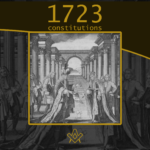
1723 constitutions
Editorial
The Anderson’s 1723 Constitutions transformed Freemasonry. By establishing new principles that supported Enlightenment ideas, they marked a departure from the “Old Charges” that governed mediaeval stonemasons’ lodges. Tolerance of other faiths, individualism, respect in relationships, and learning and development were all mentioned.
read the full series …
Recent Articles: masonic history
 Protestantism and Masonic Influence in Brazil Discover the untold story of how Freemasons helped Southern Americans immigrate to Brazil post-Civil War, fostering economic and educational growth in Santa Bárbara d’Oeste and Americana. Learn about their pivotal role in establishing Protestant churches and ensuring the secularity of the Brazilian State amidst a Catholic-dominated society. |
 Explore the proper use of the sacred word in Brazilian Freemasonry through an analysis of Masonic literature and Bible translations. Uncover the errors in pronunciation and the need for corrections to maintain liturgical coherence in rituals. Discover insights on Masonry, rituals, and the Hebrew word Boaz. |
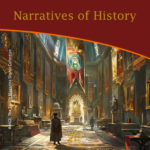 Narratives of History |
 A Very Royal Sesquicentenary |
 Unveiling the Enigma: Discover the Royal Society's Legacy and its Impact on Science. Delve into the fascinating history of the Royal Society, the prestigious UK academy shaping scientific progress since 1660. Explore its pivotal role in advancing knowledge, fostering collaboration, and unlocking the secrets of the universe. Prepare to be amazed! |
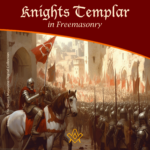 Knights Templar in Freemasonry Uncover the Mysteries of the Knights Templar in Freemasonry! Delve into the intriguing world where chivalry and symbolism intertwine. Discover the captivating rituals and ancient secrets behind the Knights Templar Masonic Orders. Explore the historical connection and delve into the enigmatic narratives that continue to fascinate enthusiasts today. Unveil the hidden truths now! |
 The Royal Arch stands as the rainbow of promise in the Ritual; it stands as the promise of the resurrection; of that which was lost and that it shall be recovered. The question arises as to whether the Master's Word was originally communicated in the Third Degree? On this point there is some diversity of opinion. Originally published in 1915, this insight into the Fourth Degree – the Holy Royal Arch – is as relevant today as it was over 100 years ago. |
 Unveiling the Mysteries of Druidism: Discover the Intriguing Connection with Freemasonry. Explore the ancient spiritual practice of Druidism and its fascinating ties to the enigmatic world of Freemasonry. Delve into the shared symbolism and rituals that have captivated minds for centuries. Unlock the secrets of these intertwined traditions today! |
 Uncover the legacy of freestone masons and their pivotal role in crafting medieval cathedrals. Discover the artistry behind their techniques, the hierarchy within their craft, and the enduring impact of their intricate carvings. A deep dive into the world of these master craftsmen awaits you! |
 Unearth the intriguing journey from Vincha Culture to Freemasonry. Discover how ancient building methods intertwine with modern Masonic philosophies. This exploration will shed light on the fascinating link between the Serbian term "shestarenye" and the symbolic significance of the compass in Freemasonry. |
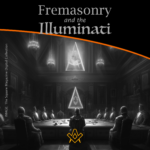 Freemasonry and the Illuminati Unravel the enigmatic world of Freemasonry and the Illuminati in our latest exposé. Dive into centuries-old mysteries, debunk conspiracy theories, and discover the truth behind these elusive societies. Are they puppet masters or mere myths? Join us as we dissect history and fact from fiction. |
 The Île des Templiers, or “Island of the Templars” lies within a leafy park in Paris. The execution site of Jacques du Molay, the last Grand Master of the Knights’ Templar bears a plaque with the epitaph ‘A cet endroit / Jacques de Molay / Dernier grand maître / de l'ordre du temple / a été brûlé le 18 Mars 1314’ (‘In this location / Jacques de Molay / Last grand master / of the order of the temple / was burned on 18 March 1314’) |
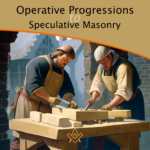 Operative Progressions to Speculative Masonry Both Operative and Speculative Masonry are an important part of the modern fraternity of Freemasonry, which combines elements of both traditions. Today, Freemasonry is a fraternity that is open to men of good character, who are interested in personal development and in making a positive contribution to their communities. |
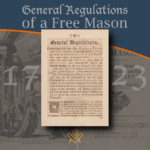 General Regulations of a Free Mason, 1723 General Regulations of a Free Mason as contained in Anderson's Constitutions of the Freemasons, published 1723. the Regulations are of great historical interest. Compiled by George Payne, the second Grand Master of the Premier Grand Lodge of England, they were printed in 1722/3, thus published just over five years after the formation of the Grand Lodge 1717. |
 The Genesis of the 1723 Book of Constitutions 2023, marks the three hundredth anniversary of the publication of the first printed Book of Constitutions of the Grand Lodge formally established in London two years previously. This is an anniversary whose significance extends beyond freemasonry. A paper by Andrew Prescott |
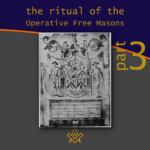 The Ritual of the Operative Free Masons - P3 Existing Operative Free Masons. The ritual I am about to refer, is that of "The Worshipful Society of Free Masons, Rough Masons, Wallers, Slaters, Paviors, Plaisterers, and Bricklayers." By Thomas Carr, M.D., P. M. Honorary Member of the Guild of Operative Free Masons |
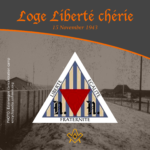 Liberté chérie was a Masonic Lodge founded in 1943 by Belgian Resistance fighters and other political prisoners at Esterwegen concentration camp. It was one of the few lodges of Freemasons founded within a Nazi concentration camp during the Second World War. |
 The Ritual of the Operative Free Masons - P2 If anyone doubts the fact that the formation of Speculative Free Masonry was due to and based upon Operative Free Masonry, it is quite easy to convince him of his error if he will only study the first Book of Constitutions. By Thomas Carr, M.D., P. M. Honorary Member of the Guild of Operative Free Masons |
 In 1881, Freemasonry rose from the ashes of a fire in the mining town of Kokomo, Summit County, Colorado. Corinthian Lodge No. 42, along with Kokomo, no longer exists but it holds the record of having been – at an elevation of 10,618 feet – the highest Masonic Lodge in the USA. |
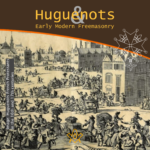 The Huguenots and Early Modern Freemasonry The Huguenots influence in the development of early modern Freemasonry at the time of the formation of the Grand Lodge in London around 1717 / 1723. |
 November is a month of reflection – perhaps due to the fact that we are getting close to the years' end – but also because Remembrance / Armistice Day (11 November) is a significant date in most countries' diaries. |
 Speculative Freemasonry, as practise by Grand Lodge of England, was officially born just over three hundred years ago, is today an international organisation, counting over six million members. It has been subjected to persecution, suppression, and abolition throughout its history. In its infancy, only a couple of decades after its official birth, it had already become a target. |
 The Ritual of the Operative Free Masons - P1 The original paper was written, first, to prove that Speculative Free Masonry was derived from Operative Free Masonry; second, to give some account of the Operative Free Masons, of their Ritual, and of their customs. By Thomas Carr, M.D., P. M. Honorary Member of the Guild of Operative Free Masons |
 American Fraternalism in the 19th and Early 20th Centuries The late 19th and early 20th centuries in the United States has been called the "Golden Age of Fraternalism." How did this come about and why was the idea of joining a fraternal organization so popular? We will explore this question and examine the regalia used by many fraternal organizations in this period. |
 Societas Draconistarum, meaning "Society of the Dragonists"– was a chivalric Order for selected nobility, founded in 1408 by Sigismund von Luxembourg, who through marriage became the King of Hungary (1387–1437) and later Holy Roman Emperor. The Order was fashioned after the military orders of the Crusades, requiring its initiates to defend the cross and fight the enemies of Christianity, in particular the Ottoman Empire. |
 The Perjured Free Mason Detected Was Samuel Prichard a perjured individual, or simply a misguided Freemason? Prichard's book "Free Masonry Dissected" published in 1730, is now used by many Masonic historians as a source of reference with regards to the introduction of the third degree into the Craft. But at the time it was published in 1730, it was not so well received by members of the Grand Lodge of England. |
 17th century and the Holy Royal Arch This article focuses on a period of transition between a point in time when we can safely and historically identify the first formation of what could be called as the ‘Royal Arch’ and the historical events that have preceded it. |
 Most Freemasons have heard the terms 'Operative' and 'Speculative' Masons, and this article helps to understand the difference: |
 Roberts' Constitutions of Freemasonry 1722 Published a year before Anderson's Constitutions, The Old Constitutions Belonging to the Ancient and Honourable SOCIETY OF Free and Accepted MASONS. Originally printed in London England; Sold by J. Roberts, in Warwick-Lane, MDCCXXII.(1722) |
 From 'Songs of religion and life', 1876 by John Stuart Blackie (1809-1895) |
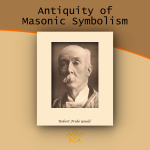 On the Antiquity of Masonic Symbolism Is the Symbolism of Masonry an inheritance derived from the old Masons who flourished before the era of the Grand Lodges (1717); or has it been borrowed from the Rosicrucians or others, after 1717? |
 Mason's Marks – from Egypt to Europe? Mason's marks have been a source of intrigue, not only to Freemasons but to historians and archaeologists. The use of simple pictograms have been employed for millennia by artisans to identify their work. But where did they originate and why? |
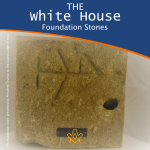 The White House Foundation Stones Further to the articles in our series on the history of the stone masons, we have a rather intriguing addition. During the 1950's renovation of the White House, President Truman retrieved more than 100 stone blocks with stonemasons marks. |
 What the Goose and Gridiron Tavern is in the ancient annals of London Freemasonry, The Green Dragon Tavern is to the memories of the Free-mason, of Boston and New England. |
 Auschwitz concentration camp: video photo article taken in 2013 |
 There are two things of importance happening this day - 27 January |
 Two approaches regarding the understanding of Freemasonry |
 Masonic Research in England c1930 An article which appeared in an American Masonic magazine, c1930 and which was reproduced in England, provoking a little controversy. |
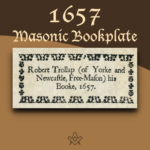 Masonic bookplates the ‘Brethren’s spiritual coats of arms and marks’ |
 The Unlawful Societies Act of 1799 Rebellious Freemasons and the 21st century |
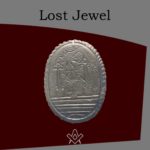 In 1912, Sarah Dowd of Dromore, Ireland, found a Masonic jewel dated 1517 - a date two hundred years before the establishment of Grand Lodge... |
 Freemasonry and Fascist Regime Interesting speech by the famous historian Prof. Aldo A. Mola, who links the fascist regime with the Masonic Associations. |
 Was famous Russian poet Alexander Pushkin a Freemason? And if so, was he a member of the lodge ‘for which all the lodges in Russia were destroyed’? |
 The Importance of Masonic Research Why is accurate - or authentic - Masonic research so important? The importance of making a daily advancement in Masonic knowledge is something that The Square is passionate about promoting. |
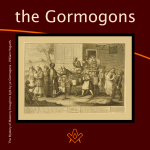 The Antient Noble Order of the Gormogons had a brief existence in the eighteenth century; they left few records or accomplishments, |
masonic knowledge
to be a better citizen of the world
share the square with two brothers

click image to open email app on mobile device



